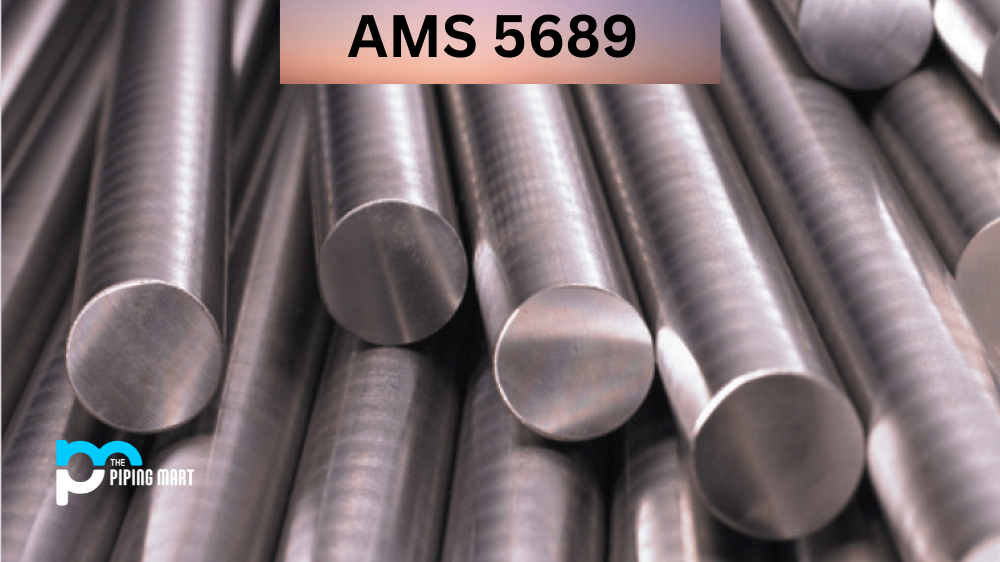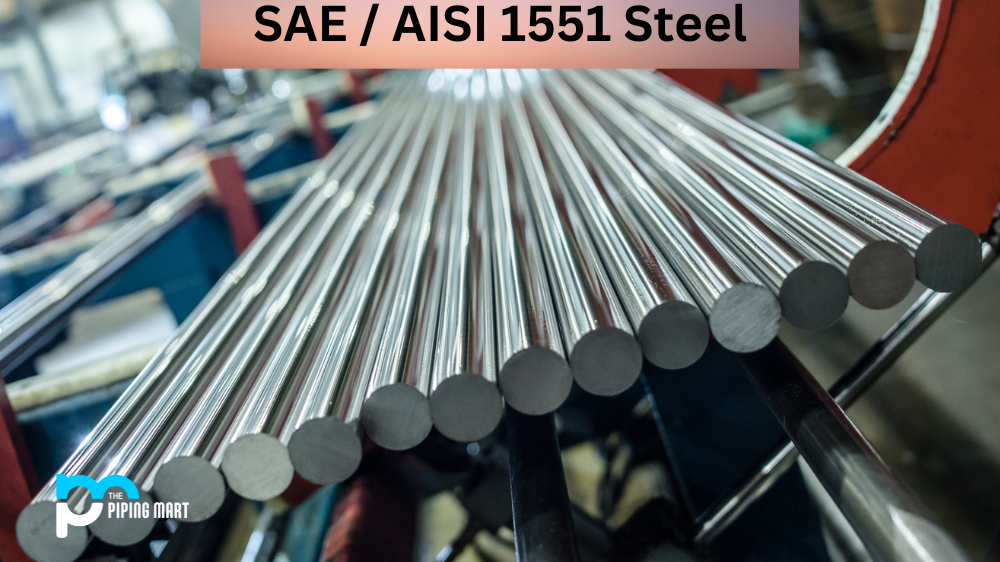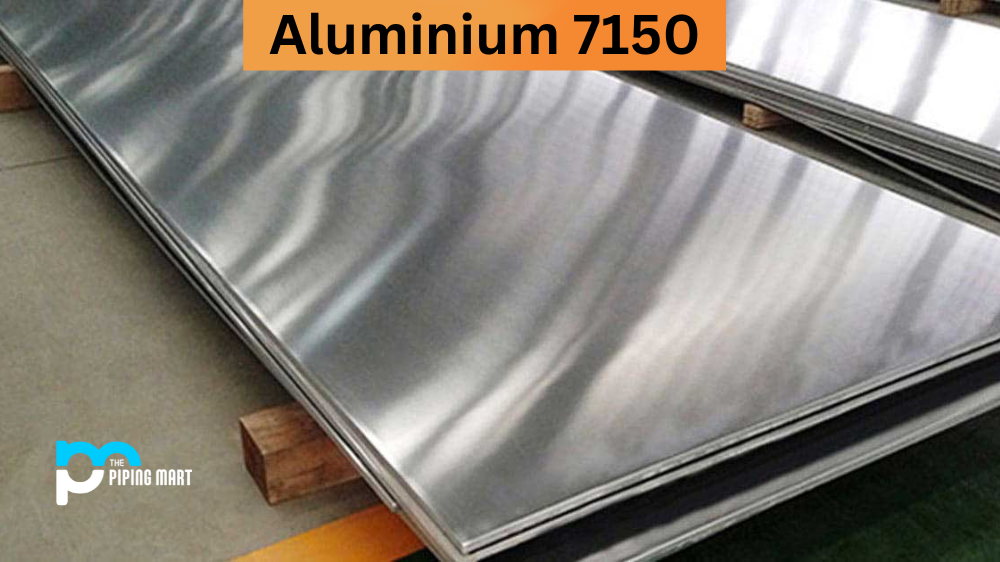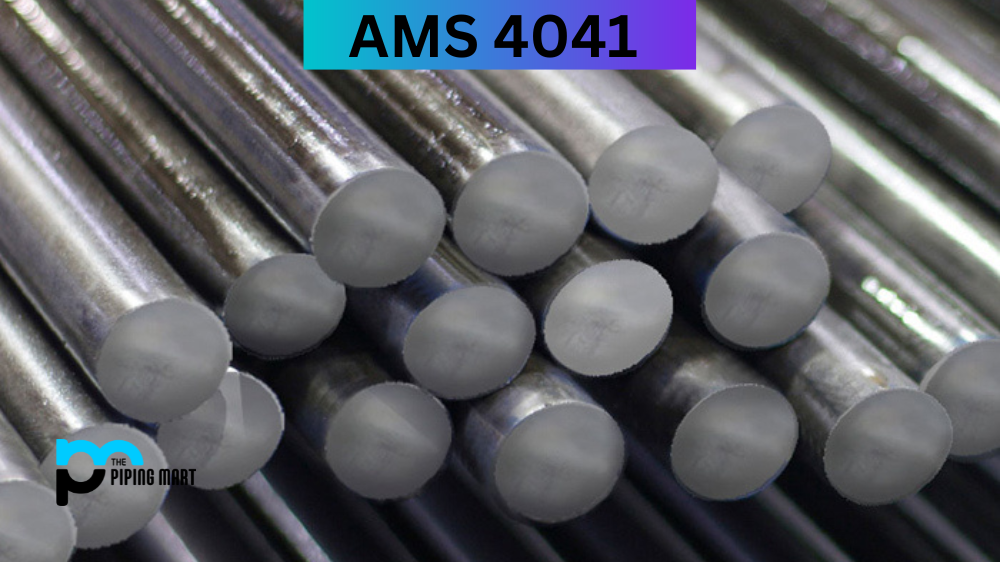If you work in the aerospace, defence, or medical industry, you may have heard of AMS5689. It is a widely used steel alloy known for its excellent mechanical properties and corrosion resistance. This blog post will dive deeper into the spec AMS 5689 and explore its composition, physical and mechanical properties, uses, hardness, and heat treatment.
What is AMS 5689?
AMS5689 (also known as 321 Stainless Steel) is an aerospace material specification developed by the Aerospace Materials Division of the Society of Automotive Engineers (SAE). The specification sets standards for corrosion-resistant steel alloys suitable for aircraft applications. These alloys offer excellent corrosion resistance, thermal fatigue resistance and strength in high-temperature environments.
What Form is AMS 5689 Available at Piping Mart?
- Nut
- Bolt
- Pipe Fittings
- Tubing
- Valves
- Flanges
- Channels
- Fasteners
- Electrodes
- Sheet Plates
- Forged Fitting
AMS 5689 Composition
Composition is a crucial factor in understanding the properties and application of any steel alloy. AMS5689 is classified as a martensitic stainless steel alloy that contains a significant amount of chromium, nickel, and molybdenum. Specifically, the alloy consists of 17-19% chromium, 8-10% nickel, 2-3% molybdenum, 0.08% carbon, and up to 1% manganese. These elements provide AMS5689 excellent corrosion resistance, toughness, and high-temperature strength.
| Element | AMS 5680 |
| Carbon | 0.08 |
| Chromium | 17.0-19.0 |
| Nickel | 9.0-12.0 |
| Manganese | 2.00 |
| Silicon | 0.75 |
| Nitrogen | 0.10 |
| Phosphorus | 0.045 |
| Sulfur | 0.030 |
| Titanium | 5(C+N) min / 0.70 max |
AMS 5689 Physical properties
Moving on to the physical properties, AMS 5689 boasts impressive density, thermal expansion, and thermal conductivity. The alloy has a density of 7.84 g/cm3, a thermal expansion coefficient of 11.5×10-6/°C, and a thermal conductivity of 16.3 W/mK. These physical properties make AMS 5689 suitable for use in high-temperature and high-pressure environments and applications requiring excellent thermal stability and conductivity.
| Grade | Density (kg/m3) | Elastic Modulus (GPa) | Mean Coefficient of Thermal Expansion (μm/m/°C) | Thermal Conductivity (W/m.K) | Specific Heat 0-100 °C (J/kg.K) | Electrical Resistivity (nΩ.m) | |||
|---|---|---|---|---|---|---|---|---|---|
| 0-100 °C | 0-315 °C | 0-538 °C | at 100 °C | at 500 °C | |||||
| AMS 5689 | 8027 | 193 | 16.6 | 17.2 | 18.6 | 16.1 | 22.2 | 500 | 720 |
AMS 5689 Mechanical properties
Mechanical properties refer to the alloy’s strength, flexibility, and toughness. AMS 5689 has a tensile strength of 1780 MPa, yield strength of 1360 MPa, and an elongation of 15%. It also has high toughness and resistance to fatigue, making it ideal for critical applications such as aircraft landing gear, missile components, and medical implants.
| DESCRIPTION | AMS 5576 |
|---|---|
| Proof Stress 0.2% (MPa) | 205 |
| Tensile strength (MPa) | 515 |
| Elongation A5 (%) | 40 |
| Hardness | HB: 217 HRB: 95 |
AMS 5689 Equivalents
| Grade | UNS No | Old British | Euronorm | Swedish SS | Japanese JIS | ||
|---|---|---|---|---|---|---|---|
| BS | En | No | Name | ||||
| AMS 5689 | S32100 | 321S31 | 58B, 58C | 1.4541 | X6CrNiTi18-10 | 2337 | SUS 321 |
AMS 5689 Uses
Regarding uses, AMS 5689 wire is primarily used in the aerospace and defence industries for its excellent strength, toughness, and corrosion resistance. It is used in aircraft components, missile parts, springs, and landing gear. The medical industry, AMS 5689 is used for surgical instruments and implants due to its biocompatibility, corrosion resistance, and strength.
AMS 5689 Hardness & Heat Treatment
Hardness is another critical aspect of AMS 5689. The alloy has a Rockwell hardness of C44, making it much harder than standard austenitic stainless steels. The hardness of AMS 5689 contributes to its excellent wear resistance and ability to withstand heavy impact.
Lastly, let’s talk about heat treatment. The alloy can be heat-treated to achieve optimal properties for specific applications. Heat treatment involves heating the alloy to a specific temperature, quenching it in water or oil, and then tempering it at a lower temperature to achieve the desired properties.
Conclusion:
AMS 5689 material is a martensitic stainless steel alloy with exceptional mechanical properties and corrosion resistance. Its excellent physical and mechanical properties are ideal for high-temperature, high-pressure, and corrosive environments. AMS 5689 is commonly used in the aerospace, defence, and medical industries for its strength, toughness, and biocompatibility. Its hardness and wear resistance makes it suitable for heavy applications, while its heat treatment capabilities allow for further optimization for specific uses. Knowing about AMS 5689 can help you choose the right material for your next project.

Abhishek is a seasoned blogger and industry expert, sharing his insights and knowledge on various topics. With his research, Abhishek offers valuable insights and tips for professionals and enthusiasts. Follow him for expert advice on the latest trends and developments in the metal industry.




